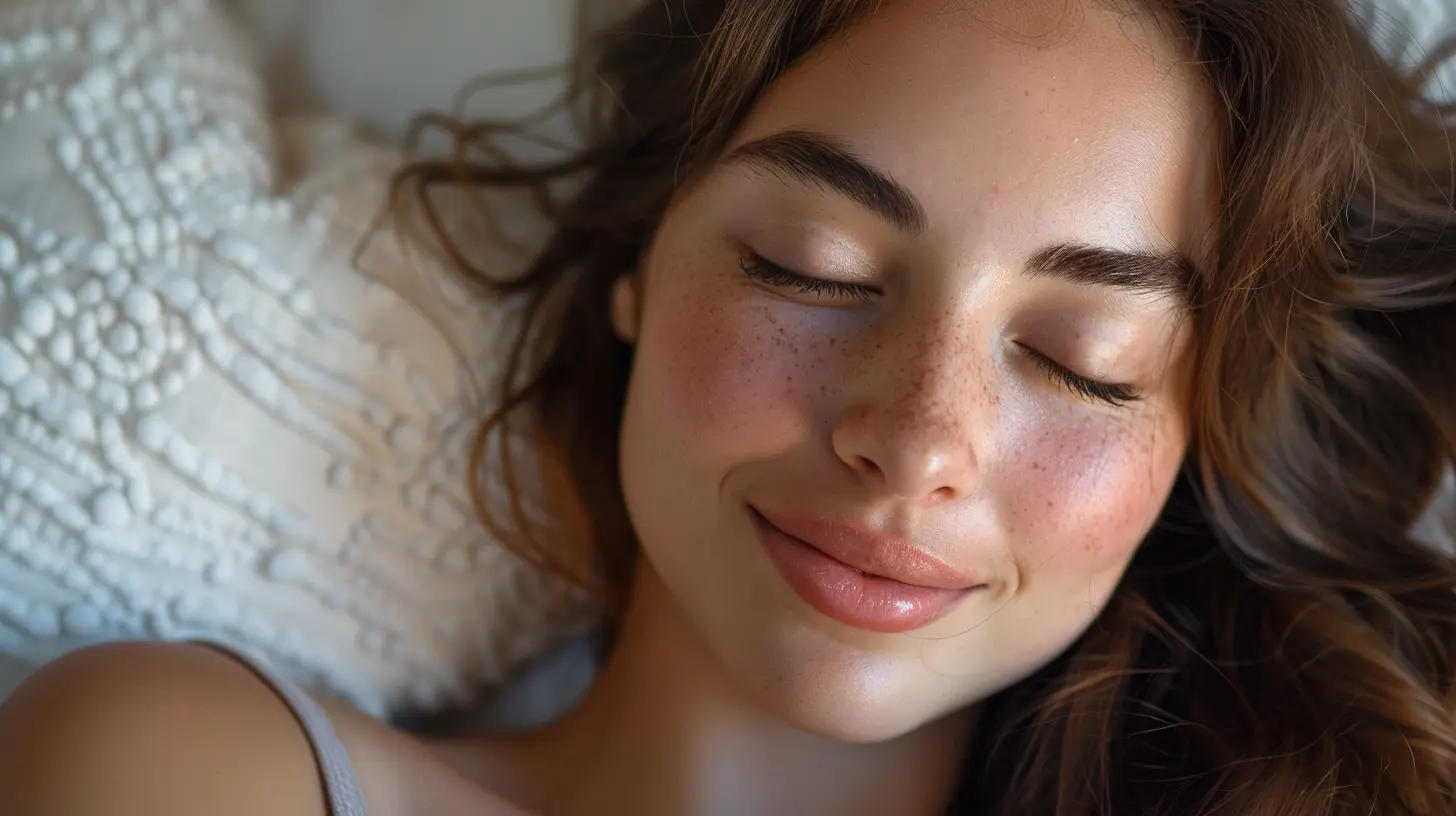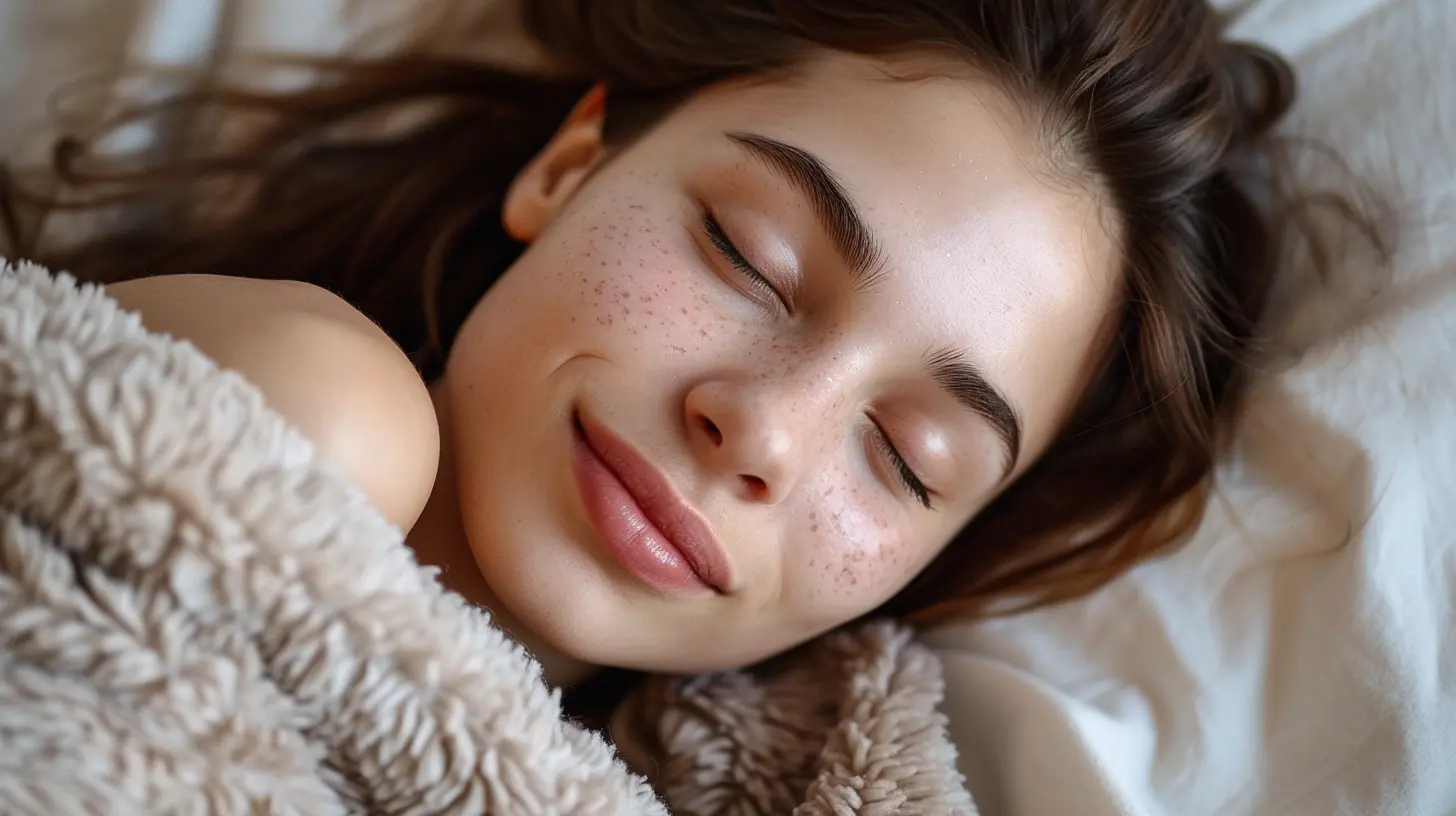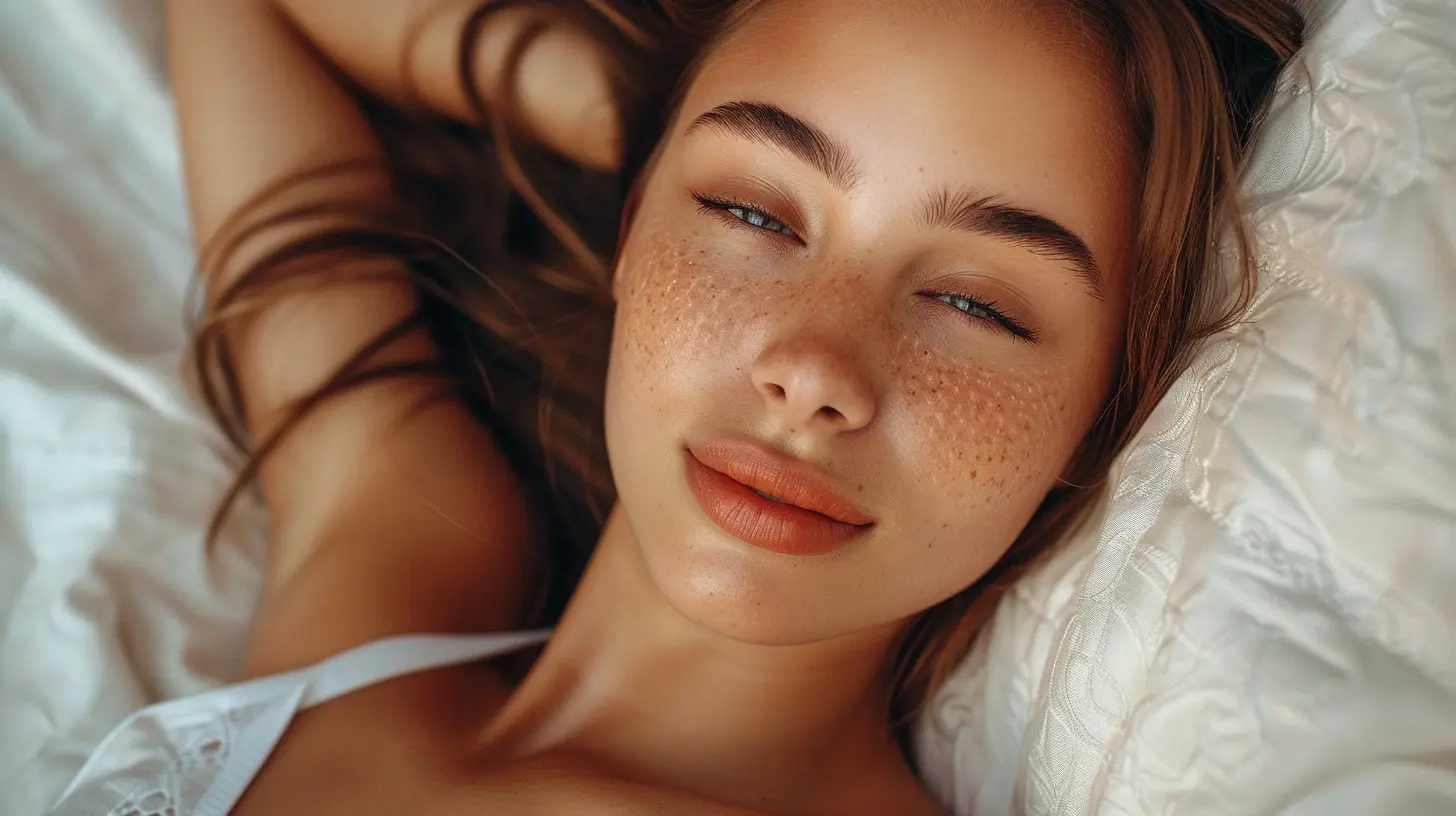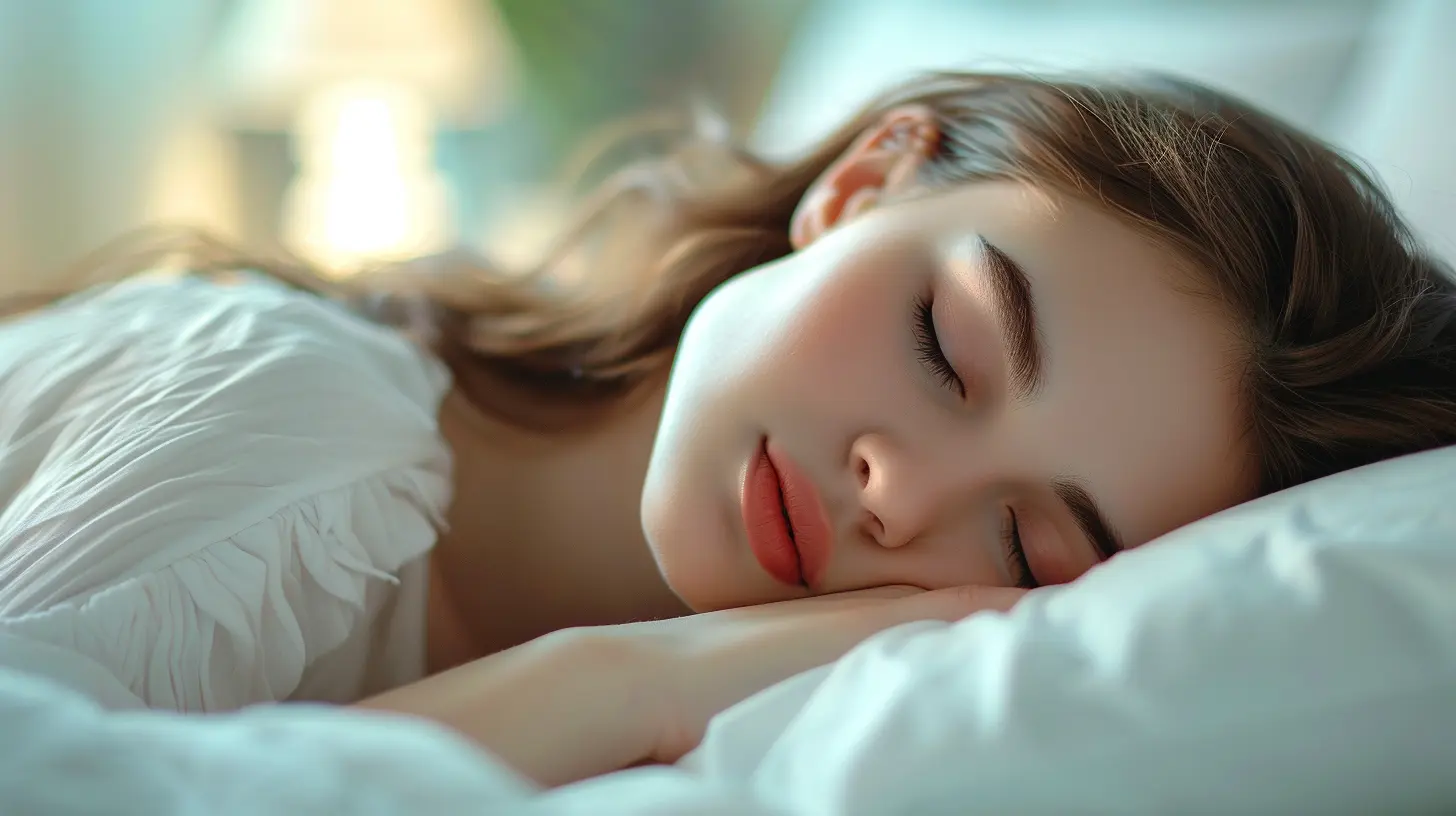The Impact of Sleep on Skin Health and How to Improve Both
1 August 2025
Who doesn’t want radiant, youthful skin? While skincare routines, serums, and moisturizers play a vital role, sleep is the unsung hero of skin health. If you’ve ever woken up with dull, puffy skin after a rough night, you already know that sleep and skin are deeply connected. But how exactly does sleep impact your skin, and what can you do to improve both? Let's break it down. 
How Sleep Affects Your Skin
1. Sleep Is Your Skin’s Repair Time
When you sleep, your body isn’t just resting—it’s working hard to repair and regenerate. During deep sleep, the body produces human growth hormone (HGH), which is crucial for skin repair. This hormone helps with collagen production, reducing fine lines, wrinkles, and sagging. If you're skimping on sleep, your skin isn’t getting the time it needs to bounce back from daily damage.2. Lack of Sleep Equals Faster Aging
Ever noticed that after a few nights of poor sleep, your skin looks older? That’s because sleep deprivation decreases collagen production, making skin less firm and elastic. Collagen is basically the scaffolding that keeps your skin plump and youthful. When it's compromised, wrinkles appear more quickly.3. Dark Circles and Puffy Eyes
Not getting enough shut-eye? The evidence shows up right under your eyes. Lack of sleep leads to poor blood circulation, causing fluid retention and dark circles. Eyes can look swollen and tired because lymphatic drainage slows down when you're sleep-deprived, making puffiness worse.4. Increased Breakouts and Skin Sensitivity
When you don’t get enough sleep, your body releases more cortisol (aka the stress hormone). High cortisol levels trigger inflammation, making skin conditions like acne, eczema, and psoriasis worse. It also causes excessive oil production, which leads to clogged pores and breakouts.5. Sleep Helps Balance Skin Hydration
While you sleep, your skin naturally balances hydration levels. Poor sleep disrupts this process, leading to dehydrated, dull skin. Dehydration also weakens the skin barrier, making it more prone to irritation, redness, and sensitivity.6. Poor Sleep Weakens Skin’s Barrier Function
Your skin barrier is like a shield, protecting against pollutants, allergens, and bacteria. A weak skin barrier makes it harder for your skin to retain moisture and fight off external aggressors. When sleep is compromised, the barrier function weakens, making your skin more vulnerable.
How to Improve Sleep for Better Skin Health
1. Stick to a Consistent Sleep Schedule
Your body thrives on routine. Going to bed and waking up at the same time every day (yes, even on weekends!) helps regulate your body’s circadian rhythm, which supports better sleep quality. Aim for 7-9 hours of sleep per night to give your skin the time it needs to regenerate.2. Create a Relaxing Nighttime Routine
A wind-down routine signals to your body that it’s time to sleep. Try dimming the lights, reading a book, or practicing deep breathing before bed. Avoid screen time at least 30-60 minutes before bedtime, as blue light from phones and laptops interferes with melatonin production.3. Upgrade Your Bedding for Skin Health
Did you know that your pillowcase could be affecting your skin? Cotton pillowcases absorb moisture and oils, which can lead to dryness and breakouts. Instead, opt for silk or satin pillowcases, which reduce friction and keep your skin hydrated. Also, wash your pillowcases frequently to prevent bacteria buildup.4. Keep Your Skin Hydrated Before Bed
Your skin loses moisture while you sleep, so help it out by using a hydrating night cream or serum with ingredients like hyaluronic acid, glycerin, and ceramides. Drinking plenty of water throughout the day also keeps your skin hydrated from the inside out.5. Limit Caffeine and Alcohol Before Bed
Both caffeine and alcohol can wreck your sleep quality. While caffeine keeps you wired, alcohol disrupts sleep cycles and dehydrates your skin. If you must have coffee, try to drink it at least 6 hours before bedtime.6. Manage Stress Levels
High stress equals high cortisol, and high cortisol equals bad skin. Try meditation, journaling, or light stretching before bed to reduce stress levels and improve sleep quality.7. Sleep on Your Back
If you’re a stomach or side sleeper, you might be unknowingly causing sleep wrinkles. Sleeping on your face creates pressure and friction, leading to fine lines over time. Try sleeping on your back to reduce facial compression and wake up with smoother skin.8. Use Overnight Face Masks
Overnight face masks work wonders while you sleep. Look for masks with antioxidants, peptides, and hydration-boosting ingredients to give your skin an extra boost overnight.9. Keep Your Bedroom Cool and Dark
Your body sleeps best in a cool (60-67°F or 16-19°C) and dark environment. Invest in blackout curtains and try a white noise machine if external noises keep you up.
The Role of Diet in Sleep and Skin Health
What you eat affects both your sleep and skin. Here are a few skin-friendly foods that also promote restful sleep:- Fatty Fish (Salmon, Mackerel, Tuna) – Rich in omega-3s, which reduce inflammation and promote deep sleep.
- Nuts (Almonds, Walnuts) – Packed with melatonin and magnesium to improve sleep quality.
- Cherries – A natural source of melatonin, helping regulate your sleep cycle.
- Dark Chocolate – Contains antioxidants that protect skin and help reduce stress-induced breakouts.
- Leafy Greens – Loaded with vitamins that support skin regeneration and calm the nervous system.
Avoid processed foods, excessive sugar, and greasy meals before bed, as they can trigger inflammation and disrupt sleep quality. 
Final Thoughts
Beauty sleep isn’t a myth—it’s science. Sleep is the foundation of glowing, healthy skin, and neglecting it can speed up aging, cause breakouts, and leave you looking exhausted. By prioritizing rest, sticking to a sleep-friendly routine, and making small lifestyle tweaks, you can wake up every morning with fresher, brighter, and healthier skin.The best part? Sleep is free. You don’t need expensive creams or treatments—just a commitment to rest. So tonight, skip that late-night Netflix binge and give your skin the sleep it deserves. Your future self will thank you!
all images in this post were generated using AI tools
Category:
Healthy SkinAuthor:

Sophia Wyatt
Discussion
rate this article
1 comments
Scarlett Velez
Great insights! Prioritizing sleep can truly transform skin health. Thank you for sharing!
August 10, 2025 at 2:54 AM

Sophia Wyatt
Thank you for your kind words! I'm glad you found the insights helpful. Prioritizing sleep really does make a difference!


